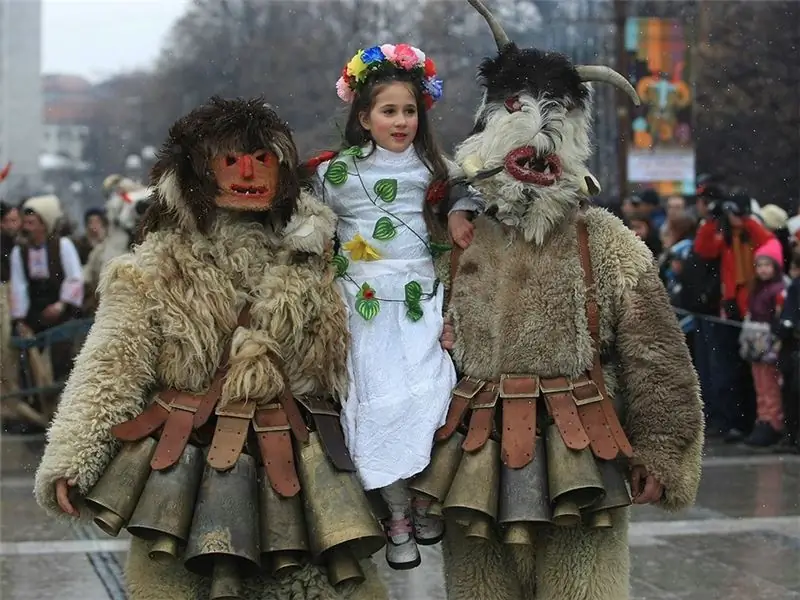
Many peoples influenced the formation of the Bulgarian culture. The Greeks and Romans, Thracians and Turks left their mark on the sunny land, and therefore the traditions of Bulgaria are diverse and interesting for fans of a wide variety of arts and folk crafts.
What are they, Bulgarians?
It is difficult to answer this question unambiguously. The inhabitants of Bulgaria are hospitable and open, they know how to work and love to organize holidays, their houses are solid and solid, and the cuisine is distinguished by a large number of hearty and simple dishes. Bulgarians know how to receive guests, and even in inexpensive restaurants and hotels, an atmosphere of tireless concern for visitors reigns here. In the traditions of Bulgaria - love for the younger generation, and therefore you can safely take your kids with you to the local resorts. They will be given a warm welcome and will be surrounded with genuine care and attention.
Examining the calendar
Going on tours to Bulgaria, you should get acquainted with the schedule of annual holidays, in the celebrations on the occasion of which it is interesting and useful to take part:
- Survakane during the Christmas holidays is an ancient ceremony symbolizing the wish of prosperity and good health to each other. He is very fond of children, presented by the owners of the surrounding houses. The kid collects gifts and money in the process of walking around the neighborhood.
- Saint Lazarus Day is celebrated on the eve of Palm Sunday. The girls collect the first flowers and weave wreaths from them, and the doors of houses are decorated with willow shoots. According to the tradition of Bulgaria, Lazarus Day is a holiday of wishing the land and each other a generous harvest.
- On the Day of Saints Helena and Constantine, performances are popular in the country, during which they dance on hot coals. This is done by professionals, but at the same time the audience falls into no less trance and precedents, when ordinary onlookers ran out of the crowd onto the brazier, a lot happens every year.
Family bonds
The traditions of Bulgaria to keep the townspeople in touch with their rural relatives can be envied in many countries of the world. This practice is called fellowship, and in almost every city apartment you can see a corner with ancient national furniture, carpets or household items of villagers. The rite of mutual aid, which also came from the depths of centuries, looks no less attractive. Bulgarians have long combined their efforts, equipment, livestock and money to carry out serious and laborious work. Harvested together, built a house, played weddings or made preparations for the winter.






